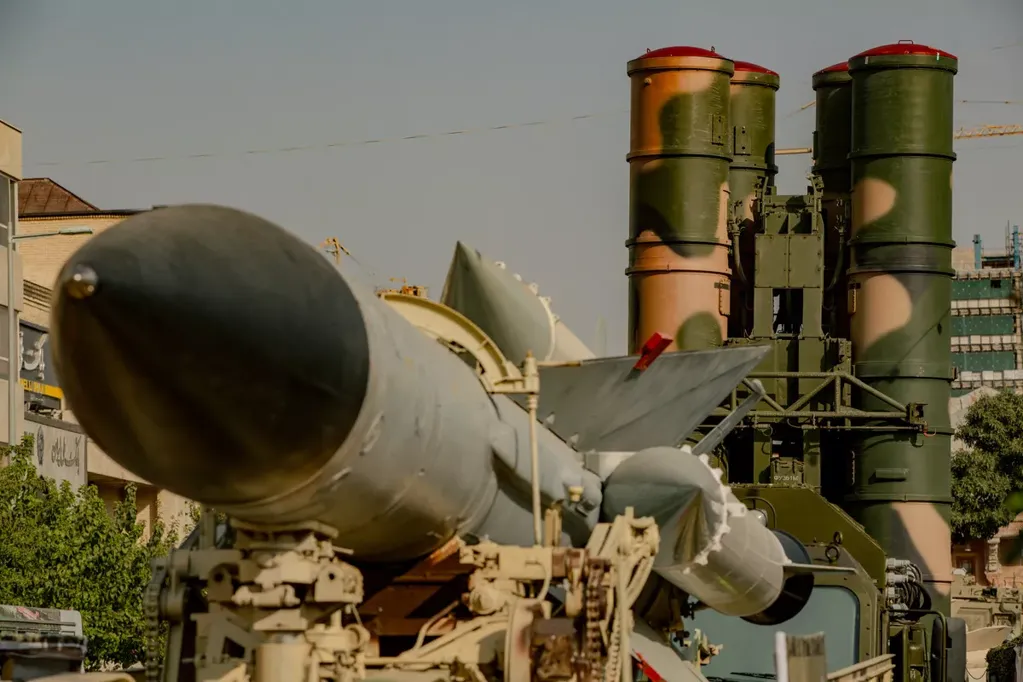Iran has "restored" its air defense network heavily targeted by Israel during last month's conflict, state media reported on Sunday, citing a senior Iranian military official.
Why It Matters
Israel homed in on Iran's air defense network ahead of launching its strikes on the country's nuclear sites and other military targets in June. Iran retaliated, the repeated exchange of strikes becoming what has been dubbed the 12-day war.
Israel quickly said it had established "full aerial superiority" over the Iranian capital and the area west of Tehran, meaning it could operate its advanced aircraft over Iran with little fear they could be shot down by air defenses.
Israel's knocking out of Iranian air defenses also cleared the path for U.S. aircraft to launch their own strikes on three Iranian nuclear facilities. Iran then attacked the U.S.'s Al Udeid military base in Qatar before a ceasefire was reached.
What To Know
Israel's "first targets" during the June war between the two countries were Iran's radars and air defense systems, Rear Admiral Mahmoud Mousavi, the deputy chief of operations for the Islamic Republic of Iran Army, said in comments carried by several state media and semiofficial outlets.
Mousavi said "some" air defenses were damaged. Israeli national security adviser, Tzachi Hanegbi, said in June the Israeli military had destroyed "dozens and dozens" of Iranian air defense systems.
"With the efforts of my comrades, however, the damaged systems were replaced and deployed at predetermined locations," Mousavi said. Newsweek has reached out to the Israeli military for comment.
There are many types of air defenses, including large ground-based systems designed to intercept advanced missiles or keep aircraft far away from key targets. Iran has operated a mixture of domestically-made and imported air defense systems, including the Russian-manufactured S-300 long-range system and the shorter-range Tor.
The Context
President Donald Trump's administration has insisted Iran's nuclear sites were "obliterated" after the U.S. strikes last month, dubbed Operation Midnight Hammer. Some intelligence assessments have been more cautious in their view of how far back the U.S. "bunker buster" bombs and missiles set back Iran's nuclear program.
Iran has long said its nuclear program is peaceful, but its officials have openly floated discussions on whether Tehran needs nuclear weapons. Experts say highly enriched uranium, far beyond that needed for non-weaponized nuclear development, has been found in Iran and it would not be hard for Tehran to make the leap toward a nuclear weapon.
Israel said in June the Iranian government was on the verge of a nuclear weapon, something the U.S. and many other Western countries have consistently deemed unacceptable. After the U.S. strikes, Iran stopped cooperating with United Nations nuclear inspectors.
Iran's semiofficial Tasnim news agency reported on Sunday Tehran had agreed to resume nuclear talks with the U.K, France and Germany, citing an anonymous source. Newsweek was unable to verify the report.
France, the U.K. and Germany told Iran on Thursday that they would restore U.N. sanctions unless it reopened talks on its nuclear program immediately and produced concrete results by the end of August.
Iran's foreign minister, Abbas Araghchi, said on Friday "any new round of talks is only possible when the other side is ready for a fair, balanced, and mutually beneficial nuclear deal." If France, the U.K. and Germany -- or the European Union -- "want to have a role," Araghchi said, "they should act responsibly, and put aside the worn-out policies of threat and pressure, including the 'snapback' for which they lack absolutely no moral and legal ground."
This term refers to the process of reinstituting sanctions.
"It was the US that withdrew from a two-year negotiated deal -- coordinated by EU in 2015 -- not Iran; and it was US that left the negotiation table in June this year and chose a military option instead, not Iran," the foreign minister said.
Trump pulled the U.S. out of the Joint Comprehensive Plan of Action (JCPOA), often referred to simply as the Iran nuclear deal, during the Republican's first term. The agreement was signed in 2015.
What People Are Saying
Mousavi said Iran had "managed to restore airspace coverage using existing systems and by deploying new replacements."
The Chief of Iran's General Staff, Major General Abdolrahim Mousavi, said on Friday that the country's air defenses had proved their "ability to withstand all levels of threats."
